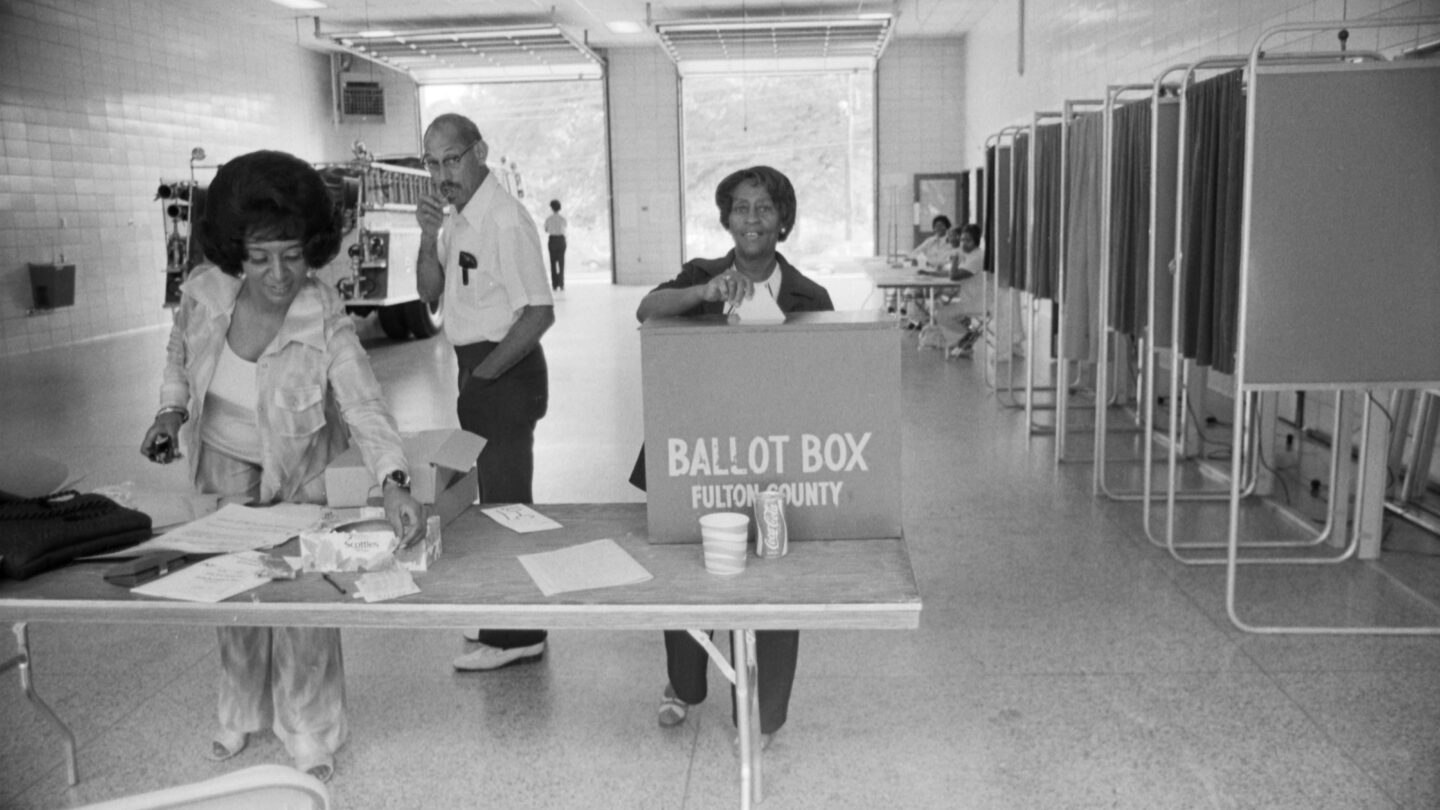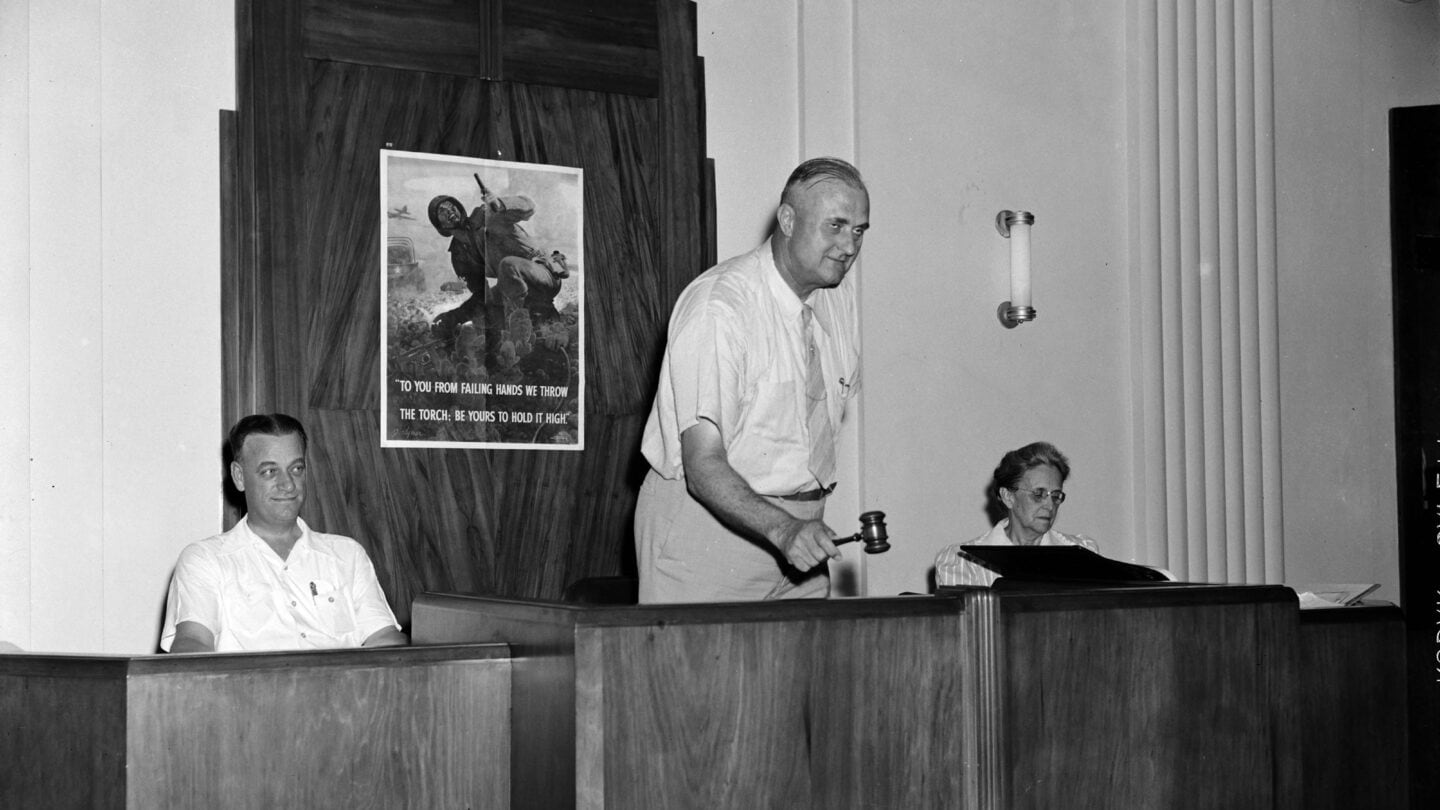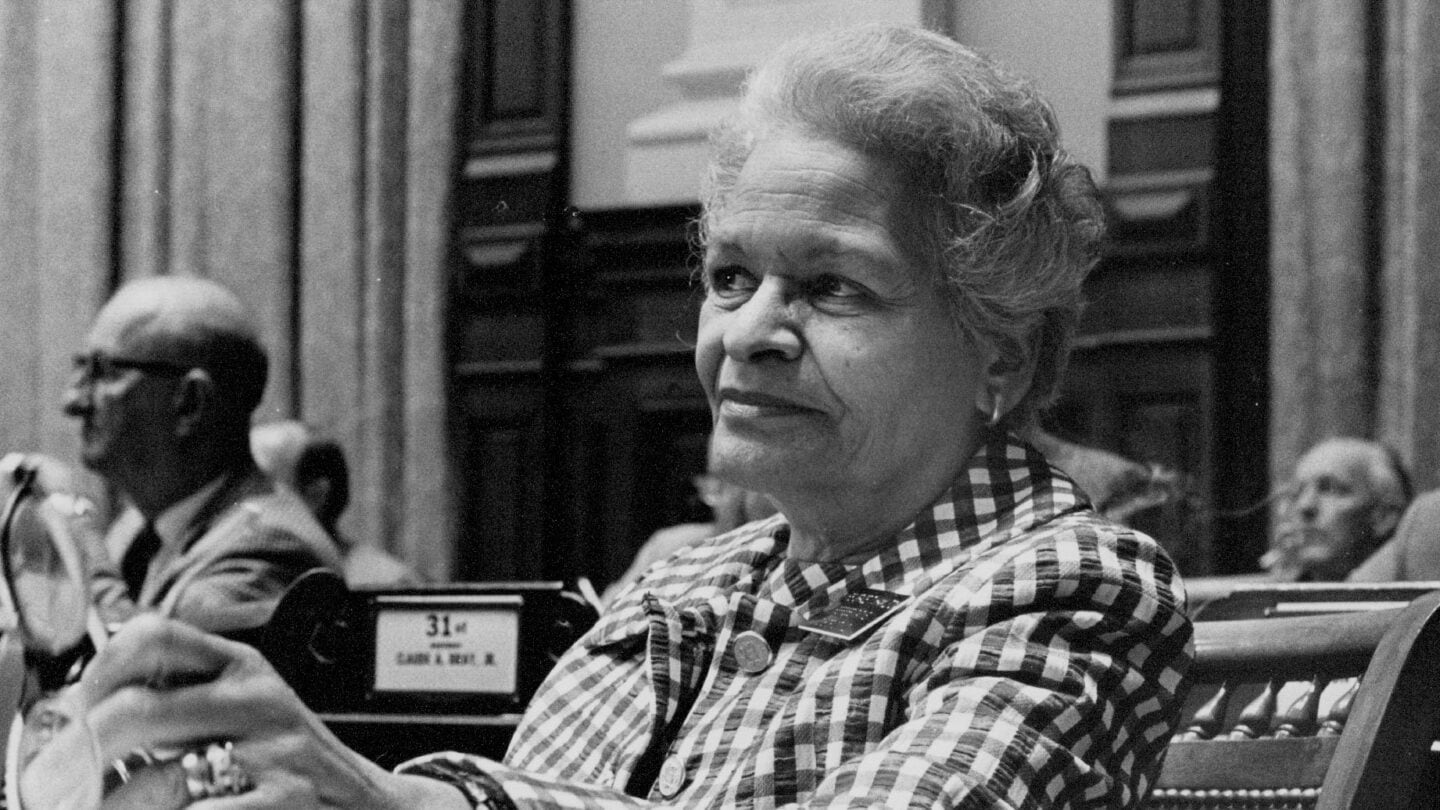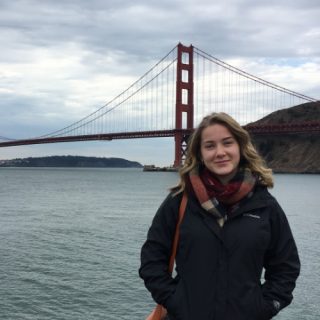
Unidentified individuals voting at a fire station in Atlanta, ca. 1973. | Boyd Lewis Photograph Collection, Kenan Research Center, Atlanta History Center
August 2020 marks the 100th anniversary of the Nineteenth Amendment, which forever changed the American electorate. The suffrage movement did not end in 1920, however. Securing the vote was just part of what Georgia’s suffragists aimed for.
Casting their ballots was the first step; appearing on the ballot was the next mighty phase. To commemorate the Nineteenth Amendment’s milestone anniversary, Atlanta History Center invites you to meet some of the women who made an impact at the polls and in office in Georgia after 1920.
Passing the Torch
The women of the suffrage movement were active citizens before they obtained the right to vote. Many participants wrote to their local and federal governments, gave speeches, joined women’s clubs, and otherwise campaigned for their place at the voting booth.
In 1904, Dr. Anna Howard Shaw was elected president of the National Woman Suffrage Association (NAWSA). An accomplished academic and the first female graduate of Boston University School of Theology, Shaw saw the value in passing the torch to a younger, more learned generation of suffragists. She campaigned tirelessly to college graduates, sorority members, and young women’s groups hoping to instill in them the fervor necessary to carry the suffrage movement across the finish line.
Shaw, who was in her late fifties when she assumed her role at NAWSA, understood that her legacy, and indeed the legacy of the suffrage movement, was the next generation of young women who would gain the vote and become more politically active than any other generation in American history.
Since the 1960s, women have had consistently higher voter turnout than men. The past century has seen more and more women making their voices heard—including on the ballot. Georgia has had many female trailblazers who have made change while making history.

View of Macon City Clerk Viola Ross Napier (right) and two unidentified men inside a courtroom in Macon, Georgia, 1945. | Kenneth Rogers Photographs, Kenan Research Center, Atlanta History Center
Viola Ross Napier & Bessie Kempton
Though Congress enacted the Nineteenth Amendment in 1920, the election of 1922 was the first in which white women of Georgia could vote. Empowered by the vote and represented on the ballot, Viola Napier and Bessie Kempton Crowell became the first women elected to the Georgia General Assembly.
Napier was a schoolteacher who pursued a career in law after her husband died in the 1918 Flu epidemic. An outspoken woman, no firm in Macon would hire her, so she started her own practice. She excelled at representing women and underprivileged communities. Napier was the first woman to argue a case before the Georgia Supreme Court and the Georgia Court of Appeals. In 1922, after putting up $48 for campaign expenses and meeting with constituents throughout her district, Napier won a seat in the Georgia legislature.
In office, she championed bills for children’s rights, including legislation ensuring better fire protection in children’s hospitals and orphanages. She advocated for better education for Georgia’s blind, differently abled, and economically at-risk citizens. Napier also introduced a bill to prevent child labor.
After two terms in the legislature, she was appointed Macon City Clerk. Though she was over-qualified for the position, she remained Clerk for 27 years.

Georgia State Representative Grace Towns Hamilton during a legislative session at the Georgia State Capitol in downtown Atlanta, Georgia, 1972. | Boyd Lewis Photograph Collection, Kenan Research Center, Atlanta History Center
Grace Towns Hamilton
Grace Towns Hamilton was the first African American woman elected to the Georgia General Assembly. When she took office in 1965, she was one of six black elected officials to enter the House of Representatives since the end of Reconstruction in 1877. An outspoken citizen, Hamilton served as the executive director of the Atlanta Urban League for eighteen years. One of the first women to hold the position, she bucked tradition and chose to wage intensive campaigns against segregation, healthcare inequalities, and educational disparities across Atlanta.
During her eighteen-year career as a Georgia legislator, she worked to expand representation of Black citizens in local and state government. When she left office, the representation of African Americans on the Atlanta City Council was commensurate with their proportion of the population. Heralded for her promotion of interracial cooperation, she is known as “the most effective woman legislature [Georgia] has ever had.”
Shirley Franklin
Shirley Franklin was the first woman to serve as Mayor of Atlanta and the first Black woman ever to govern a major Southern city. Her career in public service extends back to 1978 when she served as Atlanta’s Commissioner of Cultural Affairs under Maynard Jackson. Later, she made history as the first women to be appointed Chief Administrative Officer (City Manager) in US history. Projects in her City Manager portfolio include the continued development of Hartfield-Jackson International Airport, a new City Hall and municipal court, as well as 14,000 housing units.
In 1991, Franklin served as senior vice president for external relations on the Atlanta Committee for the Olympic Games. She oversaw the development of Centennial Olympic Park and served as the primary liaison between the Committee and labor unions, civil rights groups, neighborhood and community organizations, and environmentalists.
Leah Ward Sears
Leah Ward Sears is a woman of many firsts. She was the first Black women to serve as a Superior Court judge in Georgia; the first woman appointed to the Supreme Court of Georgia; the youngest person appointed to the Supreme Court of Georgia; the first woman to win a contested statewide election in Georgia, and the country’s first Black female state supreme court chief justice.
Prior to serving in these landmark roles, Chief Justice Sears was a trial judge on the Fulton County Superior Court. Before that, she was a practicing attorney and, at the age of 27, served as a judge on the City Court of Atlanta.
Her civic accomplishments are equally robust. Chief Justice Sears founded the Georgia Association of Black Women Attorneys and served as the organization’s first president. She also founded the Battered Women’s Project in Columbus.
We encourage you to take part in process our foremothers fought to secure.
Register to vote.Want to learn more?
If you’re curious to learn more about the roles these and other notable women played in American history, we invite you to visit Any Great Change, on campus and digitally through Google Arts & Culture. The exhibition takes a deep dive into the greater struggle for women’s rights as well as activist groups, their strategies, and their leaders. Generous funding for Any Great Change is provided by Emily Bourne Grigsby, who is committed to supporting the presentation of women’s history at Atlanta History Center.
Books + Scholarly Articles
- Paula J. Giddings | When and Where I Enter: The Impact of Black Women on Race and Sex in America
- Elna C. Green | Southern Strategies: Southern Women and the Woman Suffrage Question
- Elizabeth F. Hood | Black Women, White Women: Separate Paths to Liberation
- J. Morgan Kousser | Colorblind Injustice: Minority Voting Rights and the Undoing of the Second Reconstruction
- Marjorie Spruill, PhD | New Women of the New South: The Leaders of the Women Suffrage Movement in the Southern States
Policy + News Reports
- AARP | Black Women Had to Fight for the Right to Vote on Two Fronts
- Institute for Women’s Policy Research | Status of Women in the States
- National Humanities Center | The Woman Suffrage Movement in the United States
- National Parks Service | Between Two Worlds: Black Women and the Fight for Voting Rights
- National Parks Service | Woman Suffrage in the Southern States
- New York Times Opinion | How the Suffrage Movement Betrayed Black Women
- NPR | For Stanton, All Women Were Not Created Equal
- Turning Point Suffragist Memorial | African American Women Leaders in the Suffrage Movement
- United States House of Representatives, Office of Art & Archives | Women in Congress
- Washington Post | Despite the tremendous risk, African American women marched for suffrage, too


